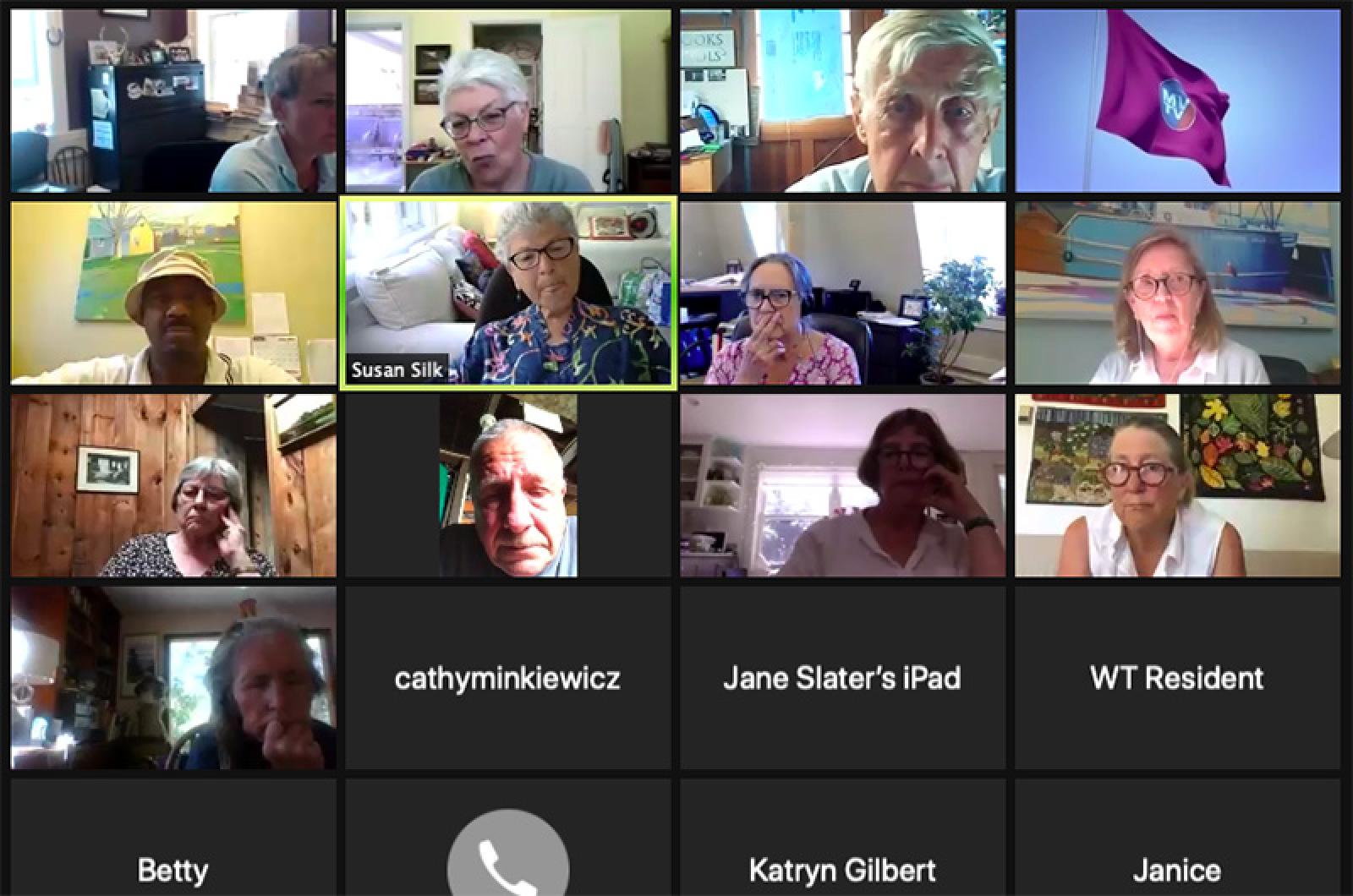Spurred by the pandemic, initially as a temporary fix, government meetings held by Zoom have become nearly ubiquitous on Martha’s Vineyard. And for the most part, that has been a good thing.
Virtual meetings are not only safer and more convenient for elected officials and the citizens who attend them, but they afford wider access and greater participation — at least in theory.
But translating the longstanding in-person meeting format to the virtual world has not been seamless. Meetings tend to run longer, officials are able to pay less attention and it is less clear when and how the public can participate. Adhering to more uniform standards could improve matters for everyone.
First, the law enacted by Gov. Charlie Baker that allows for remote meetings until at least next April retained certain important provisions of the state’s Open Meeting Law, including these:
• At the start of a meeting, the board chairman must announce the name of the members who are participating remotely.
• All votes must be taken by roll call.
• Members of the public body must be clearly audible.
• When holding an executive session, the public entity must still take all required procedural steps for entering into a closed-door session. That includes stating the reason for the executive session, and using a roll call vote in open session to go into executive session.
Other practices, including the following, will simply make for better, more effective meetings:
• Be clearly present. Elected officials should always be visible on screen, with their full names displayed.
• Curb marathon meetings. With some exceptions, such as public hearings that demand wide-ranging discussion and robust debate, no routine government meeting needs to run for three or four hours. The responsibility for running a meeting falls to the board chairman, and she or he should wield the gavel fairly, but with a firm hand.
• Allow time at the end of every meeting for public comment and questions from the press (who represent the public). While the open meeting law does not require government entities to allow public comment or public participation during meetings, the Massachusetts Attorney General encourages public bodies to allow it when feasible. In most instances it is feasible, and Island government entities would do well to make a little time allow their constituents to voice opinions.
As the old adage goes, democracy is not a spectator sport.







Comments (1)
Comments
Comment policy »